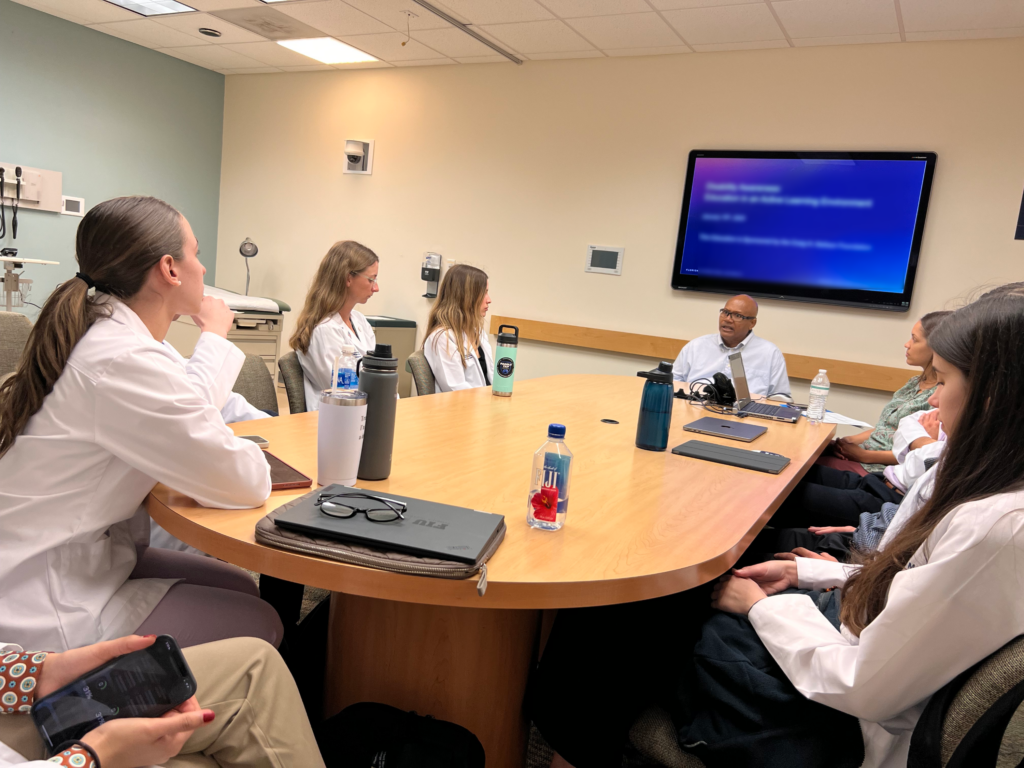
Sharing knowledge can stimulate better and richer conversations. At the Craig H. Neilsen Foundation, we value open communication among our programmatic and scientific grantee partners. We encourage researchers to push in new directions, but the key to advancement is passing on the knowledge gained so others may benefit from what was learned.
Many of our grants involve sharing information from new research that, in the short or long term, will help individuals with spinal cord injury (SCI), their families, and physicians make better decisions about care. Researchers are looking at the strain on caregivers as they assist people with SCI during the first year after injury in one ongoing Psychosocial Research portfolio grant. Interviews being conducted will inform the development and dissemination of an Internet-based guide to assist caregivers. In an effort to move out of the laboratory and use that knowledge in the community, our grantee partners of a Creating Opportunity & Independence project in Philadelphia are creating the Next Step Series—an in-depth resource to inform the SCI community about everything from pressure sores to bowel and bladder problems to accessible housing.
Disseminating information to people living with SCI exemplifies much of the work that has been funded. Just last year, the SeePain guide was developed. This comprehensive tool, created by a group at The Miami Project to Cure Paralysis, is aimed at educating SCI consumers and helping them communicate with their healthcare providers about chronic pain. Learning about research results is vital for individuals with SCI, and there is not a specific type of research grant we focus on. One grantee partner developed information about bowel and bladder management—one of the top priorities for many people with SCI seeking a better quality of life. There is also new information for individuals who are hoping to become parents. One grant enabled researchers to get the word out about their advances and discoveries in sperm motility, and guidelines for breastfeeding are available on the Spinal Cord Injury Research Evidence website.
Some of our funded programs become examples that can be replicated by other organizations. The Nature’s Way wellness program for people with disabilities worked so well at Sunset Hill Educational Institute that its staff is planning to share its experiences as a model for other organizations. And grantee partners at the Oregon Spinal Cord Injury Connection are providing information and resources to peers at Connecticut’s United Spinal chapter after finding success with a community health worker program to reach low-income clients in rural areas.
Grantee partners are encouraged to share not only their scientific papers, but their data via the Open Data Commons for SCI registry—so it can be available for analysis in the future. And, having heard the call for “nothing about us without us,” we also encourage Integrated Knowledge Translation (IKT), the involvement of people with lived experience throughout the research process. IKT is a set of guidelines developed by researchers, clinicians, and members of the SCI community. In addition, the North American Spinal Cord Consortium (NASCIC) has developed a Research Advocacy Course to teach people about the SCI research process so they can become more involved in it.
We hope the knowledge gained by both researchers and those leading new community programs spreads, to help as many people as possible. If sharing becomes an even bigger part of caring, more organizations can use the knowledge and collaborate to improve the lives of people living with SCI.